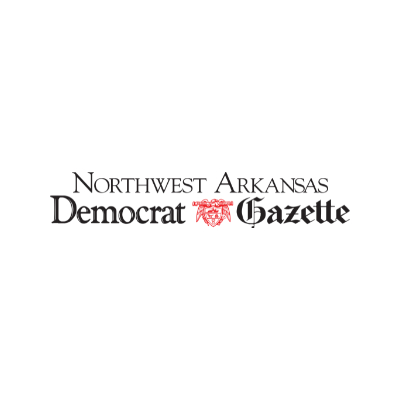 The Northwest Arkansas Democrat-Gazette Article Rating
The Northwest Arkansas Democrat-Gazette Article RatingIran denied in bid to free up U.S.-held funds
- Bias Rating
6% Center
- Reliability
35% ReliableFair
- Policy Leaning
50% Medium Conservative
- Politician Portrayal
N/A
Continue For Free
Create your free account to see the in-depth bias analytics and more.
Continue
Continue
By creating an account, you agree to our Terms and Privacy Policy, and subscribe to email updates. Already a member: Log inBias Score Analysis
The A.I. bias rating includes policy and politician portrayal leanings based on the author’s tone found in the article using machine learning. Bias scores are on a scale of -100% to 100% with higher negative scores being more liberal and higher positive scores being more conservative, and 0% being neutral.
Sentiments
N/A
- Liberal
- Conservative
| Sentence | Sentiment | Bias |
|---|---|---|
Unlock this feature by upgrading to the Pro plan. | ||
Reliability Score Analysis
Policy Leaning Analysis
Politician Portrayal Analysis
Bias Meter
Extremely
Liberal
Very
Liberal
Moderately
Liberal
Somewhat Liberal
Center
Somewhat Conservative
Moderately
Conservative
Very
Conservative
Extremely
Conservative
-100%
Liberal
100%
Conservative

Contributing sentiments towards policy:
51% : In a complex, 67-page judgment, the world court also found that some other U.S. moves to seize assets of Iran and Iranians in the United States breached a 1955 treaty between the countries and said they should negotiate compensation.49% : Iran's agent Tavakol Habibzadeh, in focus, and US agent Richard Visek, third from right, and delegation members wait for judges to enter the International Court of Justice, the United Nations' top court, which issued its judgment in a dispute between Iran and the United States over frozen Iranian state bank accounts worth some $2 billion, in The Hague, Netherlands, Thursday, March 30, 2023.
48% : Iran's agent Tavakol Habibzadeh, second left, and US agent Richard Visek, in focus, and delegation members wait for judges to enter the International Court of Justice, the United Nations' top court, which issued its judgment in a dispute between Iran and the United States over frozen Iranian state bank accounts worth some $2 billion, in The Hague, Netherlands, Thursday, March 30, 2023.
45% : It said Tehran would use "all diplomatic, legal and judiciary means" to pursue its demands.
45% : Judge and vice president Kirill Gevorgian of Russia, second right, starts reading the verdict of The International Court of Justice, the United Nations' top court, which issued its judgment in a dispute between Iran and the United States over frozen Iranian state bank accounts worth some $2 billion, in The Hague, Netherlands, Thursday, March 30, 2023.
44% :Iran's agent Tavakol Habibzadeh, center, and delegation members wait for judges to enter the International Court of Justice, the United Nations' top court, which issued its judgment in a dispute between Iran and the United States over frozen Iranian state bank accounts worth some $2 billion, in The Hague, Netherlands, Thursday, March 30, 2023.
43% :US agent Richard Visek, left, and delegation members, wait for judges to enter the International Court of Justice, the United Nations' top court, which issued its judgment in a dispute between Iran and the United States over frozen Iranian state bank accounts worth some $2 billion, in The Hague, Netherlands, Thursday, March 30, 2023.
40% : The world court's vice-president, Kirill Gevorgian, said the majority "upholds the objection to jurisdiction raised by the United States of America relating to the claims of the Islamic Republic of Iran" related to the bank.
38% : Iran has denied involvement, but a U.S. District Court judge found Tehran responsible in 2003.
37% : The U.S. and Iran have had no diplomatic relations since militant students took over the U.S. Embassy in Tehran in 1979.
36% : THE HAGUE, Netherlands -- The United Nations' top court on Thursday rejected Tehran's legal bid to free up some $2 billion in Iranian central bank assets frozen by U.S. authorities to be paid in compensation to victims of a 1983 bombing in Lebanon and other attacks linked to Iran.
36% : Iran argued the asset freeze was a breach of the 1955 Treaty of Amity, which promised friendship and cooperation between the two countries.
33% : At hearings last year, Iran cast the asset freeze as an attempt to destabilize the Tehran government and a violation of international law.
31% :Iran took its claim to the world court in 2016 after the U.S. Supreme Court ruled that money belonging to Iran's central bank could be used as compensation for the 241 American troops who died in the 1983 bombing, which was believed to be linked to Tehran.
*Our bias meter rating uses data science including sentiment analysis, machine learning and our proprietary algorithm for determining biases in news articles. Bias scores are on a scale of -100% to 100% with higher negative scores being more liberal and higher positive scores being more conservative, and 0% being neutral. The rating is an independent analysis and is not affiliated nor sponsored by the news source or any other organization.





















